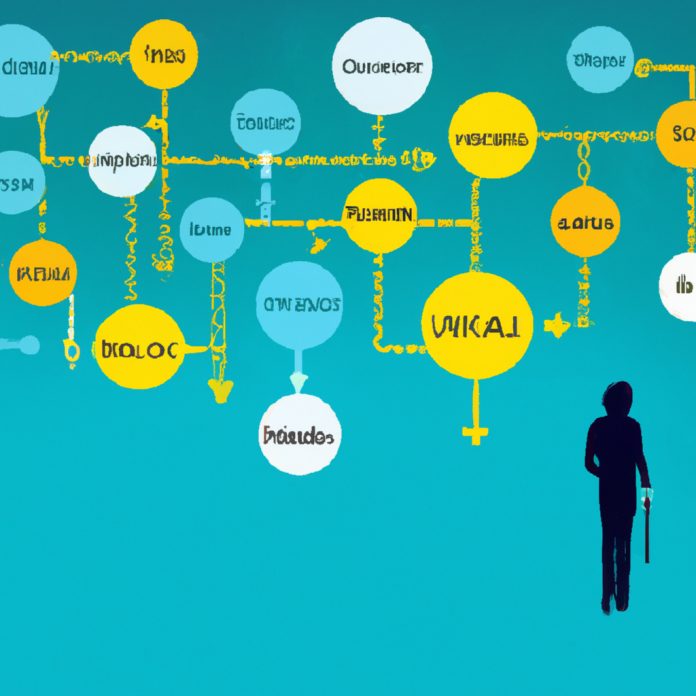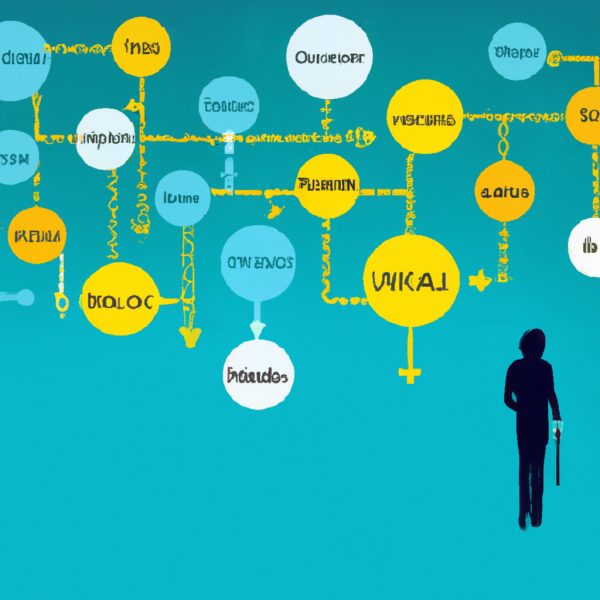Curious about keyword difficulty? Look no further! In this article, we will explore the ins and outs of keyword difficulty, shedding light on what it exactly entails and how it impacts your online visibility. Whether you’re an aspiring blogger or a seasoned digital marketer, understanding keyword difficulty is vital for crafting an effective SEO strategy that drives traffic to your website. Tune in as we demystify this crucial concept, giving you all the tools you need to rise above the competition and conquer the search engine rankings.
What is Keyword Difficulty?
Keyword difficulty refers to the level of competition and challenge associated with ranking for a specific keyword in search engine results pages (SERPs). It is a measure of how difficult it is to achieve a high ranking for a particular keyword compared to other keywords.
Review contents
Definition of Keyword Difficulty
Keyword difficulty can be defined as the level of competition and effort required to rank for a specific keyword based on factors such as the competitiveness of the keyword, the quality and authority of competing websites, the relevance of the keyword to the target audience, and other factors that influence search engine ranking.
Importance of Keyword Difficulty
Understanding keyword difficulty is crucial for search engine optimization (SEO) because it helps inform website owners and marketers about the competitiveness of keywords. By knowing the difficulty level, they can determine whether it is worth investing time, resources, and effort into targeting certain keywords.
Factors Affecting Keyword Difficulty
Several factors contribute to the overall difficulty of ranking for a keyword. These factors include:
-
Relevance of the keyword to the target audience: If a keyword aligns well with the interests and search behavior of the target audience, it is likely to have higher competition.
-
Existing competition for the keyword: The number and quality of websites already ranking for a keyword can impact the difficulty level. Highly competitive keywords often have well-established websites as competitors.
-
Quality and authority of competing websites: Websites with high domain authority and quality content have a higher chance of ranking well for competitive keywords, increasing the difficulty for others.
-
Age and domain authority of competing websites: Older websites with established domain authority are generally more difficult to outrank for a specific keyword as they have built up credibility and trust with search engines.
-
Backlink profiles of competing websites: The number and quality of backlinks pointing to competing websites can influence keyword difficulty. Websites with strong backlink profiles tend to have an advantage in ranking for competitive keywords.
-
Content optimization and relevancy: Websites with well-optimized and highly relevant content that satisfies user intent are more likely to rank higher for specific keywords.
-
User intent and search behavior: Understanding the intent behind a user’s search query is important in determining keyword difficulty. Keywords with clear commercial intent may have higher competition, while informational keywords may be less competitive.
Understanding Search Engine Ranking
Search engine ranking refers to the position at which a website appears in search engine results for a specific keyword. Websites that rank higher in the SERPs generally receive more organic traffic and have a higher chance of attracting potential customers.
How to Determine Keyword Difficulty
There are various methods and tools available to determine keyword difficulty. These include:
-
Using keyword research tools: Keyword research tools provide insights into search volume and competition for specific keywords, which can help gauge their difficulty level.
-
Analyzing search volume and competition: By analyzing the search volume and the number of competing websites for a keyword, it is possible to estimate the level of difficulty. High search volume and high competition indicate higher difficulty.
-
Assessing top-ranking pages: Analyzing the top-ranking pages for a keyword can provide insights into the quality and relevance of the content that is currently performing well. This information can help in assessing the difficulty of ranking for that keyword.
-
Evaluating backlink profiles: Examining the backlink profiles of competing websites can give an idea of the authority and credibility of those websites, which can impact keyword difficulty.
-
Considering domain and page authority: The domain authority and page authority of a website can provide an indication of its overall strength and influence in search engine rankings. Higher domain and page authority can increase keyword difficulty.
-
Analyzing search engine results pages (SERPs): Studying the SERPs for a specific keyword can reveal valuable information about the types of websites and content that are ranking well. This information can help estimate keyword difficulty.
Tools for Assessing Keyword Difficulty
There are several popular keyword research tools available that provide metrics for assessing keyword difficulty. Some common tools include:
-
Moz: Moz’s Keyword Difficulty tool provides a score, ranging from 1 to 100, that estimates the difficulty of ranking for a specific keyword. The tool takes into account factors such as page authority, domain authority, and backlink profiles.
-
SEMrush: SEMrush offers a Keyword Difficulty tool that provides an estimate of how difficult it is to rank for a specific keyword based on factors like search volume and competitors’ data.
-
Ahrefs: Ahrefs’ Keyword Difficulty tool offers an estimation of keyword difficulty based on the number of referring domains and the strength of the top-ranking pages.
-
Google Keyword Planner: Google Keyword Planner provides data on search volume and competition for keywords, which can help in understanding the relative difficulty.
Using Keyword Difficulty to Inform SEO Strategy
Keyword difficulty plays a crucial role in shaping an effective SEO strategy. By understanding the difficulty level of keywords, website owners and marketers can make informed decisions about keyword research, content creation, link building, and competitor analysis. Here are some key areas where keyword difficulty can inform SEO strategy:
-
Keyword research and selection: Assessing keyword difficulty helps prioritize keywords based on their competitiveness and potential ROI. Targeting less competitive keywords can yield quicker results, while also focusing on high-competition keywords can be a long-term strategy.
-
Content creation and optimization: Understanding keyword difficulty aids in creating and optimizing content around keywords that have a higher chance of ranking. By focusing on keywords with lower difficulty, website owners can increase their chances of ranking well and attracting organic traffic.
-
Link building and outreach strategies: Analyzing the difficulty of keywords helps in identifying link building opportunities. Targeting keywords with lower difficulty can result in getting backlinks from websites that are more likely to collaborate due to lower competition.
-
Competitor analysis and benchmarking: By assessing the keyword difficulty of competitors, website owners can determine areas for improvement and gauge the level of competition for specific keywords. This information can guide strategies for outranking competitors.
-
Monitoring and adjusting SEO efforts: Regularly monitoring keyword difficulty helps track changes in the competitive landscape. Adjusting SEO strategies based on evolving keyword difficulty can optimize efforts and maximize results.
Tips for Targeting Keywords with Lower Difficulty
While targeting highly competitive keywords can be rewarding, focusing on keywords with lower difficulty can provide an easier pathway to success. Here are some tips for targeting keywords with lower difficulty:
-
Identifying long-tail keywords: Long-tail keywords are more specific and have lower search volume compared to head keywords. Targeting long-tail keywords allows website owners to address niche audiences and compete with less competition.
-
Focusing on specific niches and local markets: Concentrating on specific niches or local markets helps narrow down the competition. By targeting keywords with lower overall search volume but higher relevance, website owners can achieve better visibility within their specific target audience.
-
Leveraging low competition opportunities: Keep an eye out for keywords that have low competition but high search volume. These opportunities can provide a chance to rank quickly and attract a significant amount of organic traffic.
-
Optimizing content for related topics: Instead of solely focusing on high-competition keywords, create content around related topics and long-tail variations. This approach helps to improve overall website visibility while targeting keywords with lower difficulty.
Case Studies: Examples of Keyword Difficulty
To better understand the concept of keyword difficulty and the role it plays in SEO success, let’s consider a few case studies:
- Case Study 1: “Healthy Weight Loss”
The keyword “healthy weight loss” has a high search volume, indicating a high level of interest from users. However, it also has significant competition from authoritative websites with well-established domain authority. This high competition makes it difficult to achieve a top ranking without substantial resources and effort.
- Case Study 2: “Beginner Yoga Poses”
The keyword “beginner yoga poses” has moderate search volume and lower competition compared to highly competitive keywords in the fitness industry. By targeting this keyword and creating valuable content optimized around it, a website can have a higher chance of ranking well without facing intense competition.
These case studies illustrate how the level of keyword difficulty can vary based on factors such as search volume, competition, and industry. Understanding these factors can inform SEO strategies and help website owners make informed decisions about keyword targeting.
Conclusion
In conclusion, keyword difficulty is a crucial element in the world of SEO. It defines the level of competition and effort required to rank for a specific keyword. By understanding keyword difficulty, website owners and marketers can make informed decisions about keyword research, content creation, and SEO strategies. It is essential to analyze factors such as competition, relevance, and search behavior to determine keyword difficulty accurately. By targeting keywords with lower difficulty, website owners can increase their chances of ranking well, attracting organic traffic, and achieving SEO success.




























